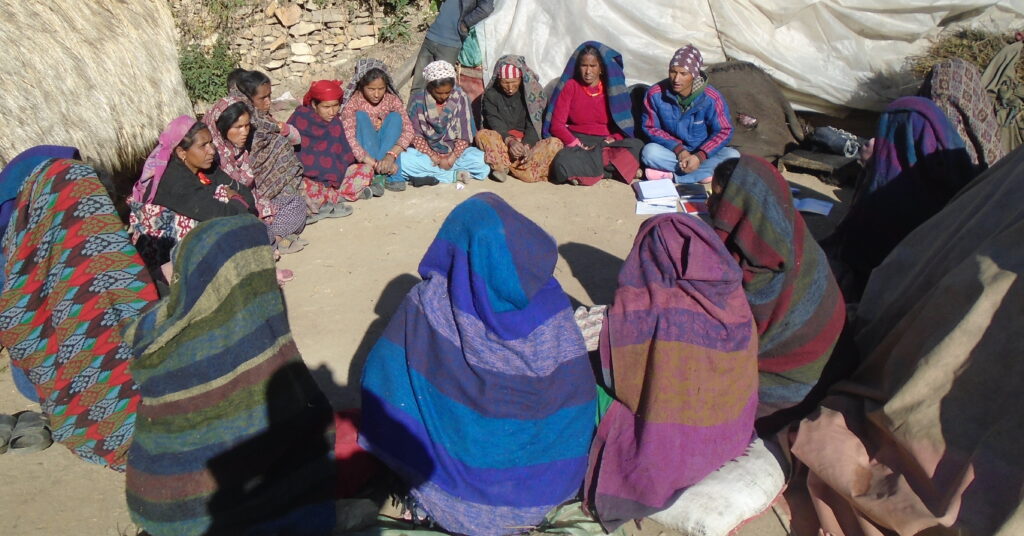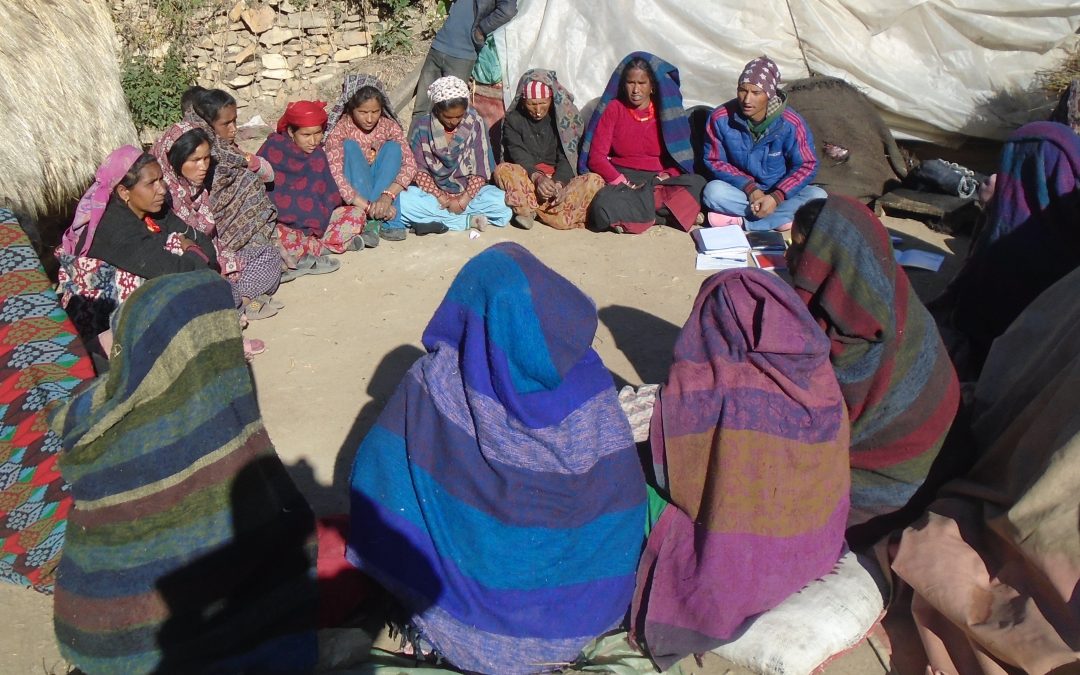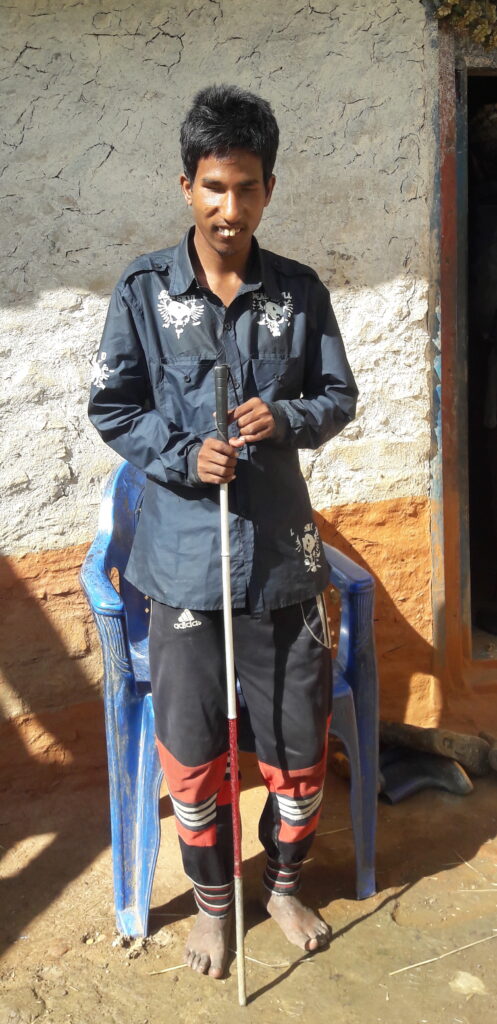
Datta, 24 years old, is a Dalit [low-caste] man from Kanakasundari Rural Municipality in Jumla District, who was born blind.
Despite strides forward, many people in Nepal still experience discrimination, exclusion and marginalisation because of their caste, ethnicity, gender, disability or religion. Dalits [the name for the caste literally means “crushed” or “oppressed”] have long experienced discrimination and exclusion although caste discrimination is illegal in Nepal.
Together with the ten members in his family, Datta owns a small piece of land from which they cultivate crops sufficient to feed the family for three months of the year. For the nine remaining months, they engage in labour work to provide food for the family. Due to his disability, Datta faces mobility issues and is unable to undertake such work. However, he has completed grade ten as well as six months of computer training.
In his community, disability is seen as a curse and punishment for sin committed by the family or ancestors. Before INF began its work in Kankasundari RM, Datta relates that he was used to being spoken to with disrespect and demeaning words. People’s perception of his disability resulted in him not being able to walk freely in his community, as people would humiliate and harass him, using belittling terms to declare that a “blind person [was] coming.”
In 2018, INF formed a Self-Help Group [SHG] which provided a platform for the community to discuss problems and issues, and find alternative ways to resolve them. The group tackles issues of importance to the livelihoods and health of group members. They also raise awareness of social issues, such as the rights of people with disabilities. By including women and men with disabilities in the groups, INF is able to model inclusion and respect, provide direct support to people with disabilities, and to advocate for changed attitudes.
One mark of this change is that people no longer use disrespectful or demeaning teams to speak to [or speak about] people with disabilities. In Datta’s case, the Self Help Group also asked INF to support Datta through the provision of a white mobility cane. Since receiving the cane, Datta’s mobility has increased and he is able to move around more easily.
Datta is grateful to INF Nepal for setting up and supporting the Self Help Groups in Kanakasundari RM. They have given him the chance to live a more mobile life, and have also changed attitudes in the community. Because of this, others with disability are able to experience inclusion and respect, where once they also faced exclusion and stigma.
Jumla WEAL receives support from the Australian Government through the Australian NGO Cooperation Program (ANCP).
The post Journey to Respect appeared first on International Nepal Fellowship Australia.




